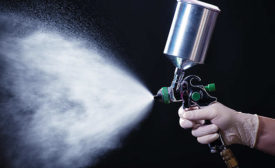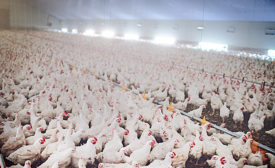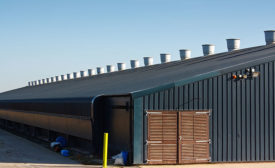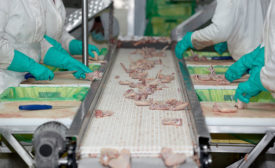Home » USPOULTRY
Articles Tagged with ''USPOULTRY''
Commentary | Poultry Perspectives
Video | Coronavirus Coverage
USPOULTRY assisting processors, regulators in COVID-19 fight
May 8, 2020
Commentary | Poultry Perspectives
Research targets re-emerging blackhead disease in the turkey and chicken industries
Read MorePoultry Perspectives
2018 IPPE education programs
The International Production & Processing Expo's education programs provide timely, relevant solutions for business improvement.
Read More
2017 Food Safety Report
Whole genome sequencing, food-safety implications addressed at IPPE
March 10, 2017
Poultry Perspectives
Court preserves Constitutional protections for poultry processors
Court denies OSHA attempt to expand accident inspection into full inspection.
Read More
Stay ahead of the curve. Unlock a dose of cutting-edge insights.
Receive our premium content directly to your inbox.
SIGN-UP TODAYCopyright ©2024. All Rights Reserved BNP Media.
Design, CMS, Hosting & Web Development :: ePublishing










